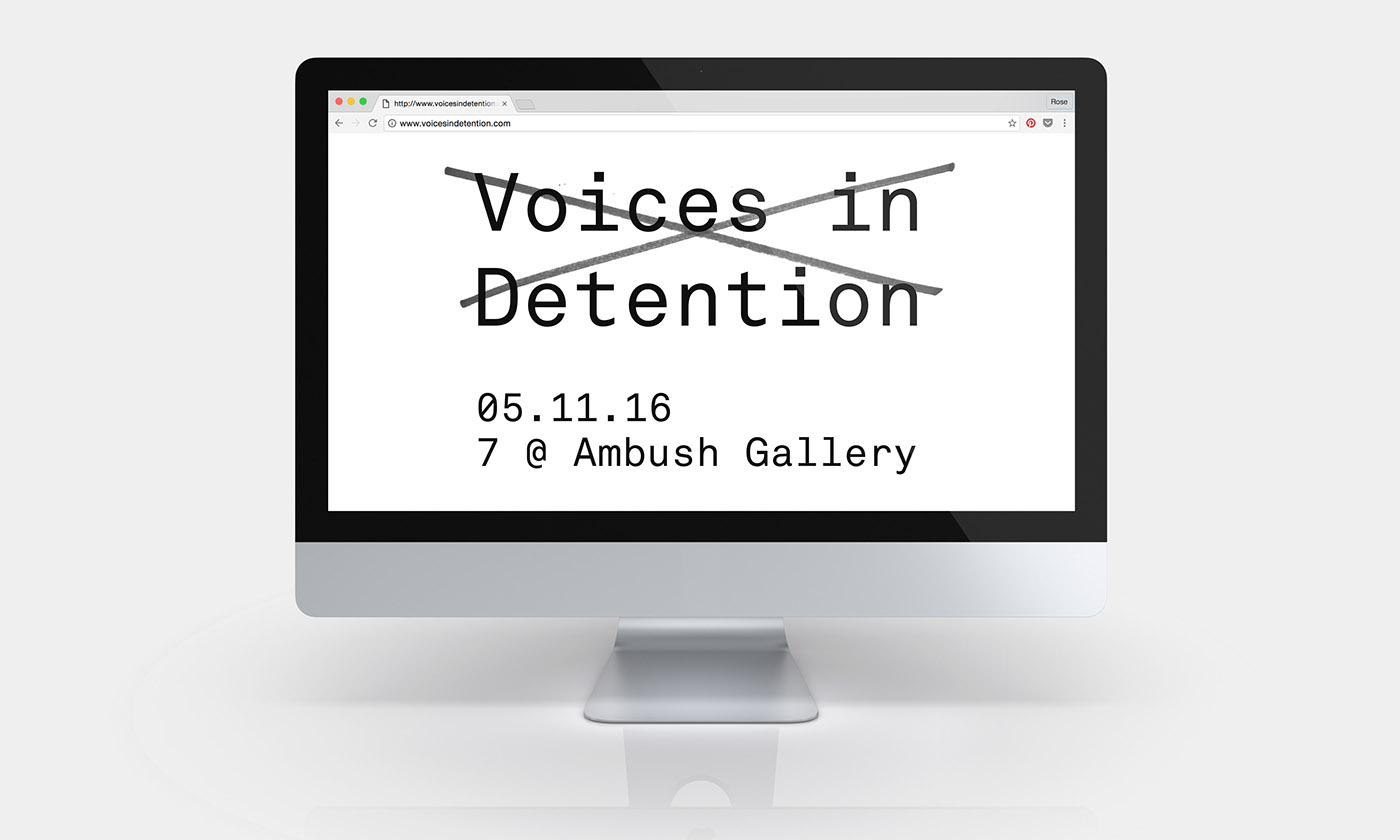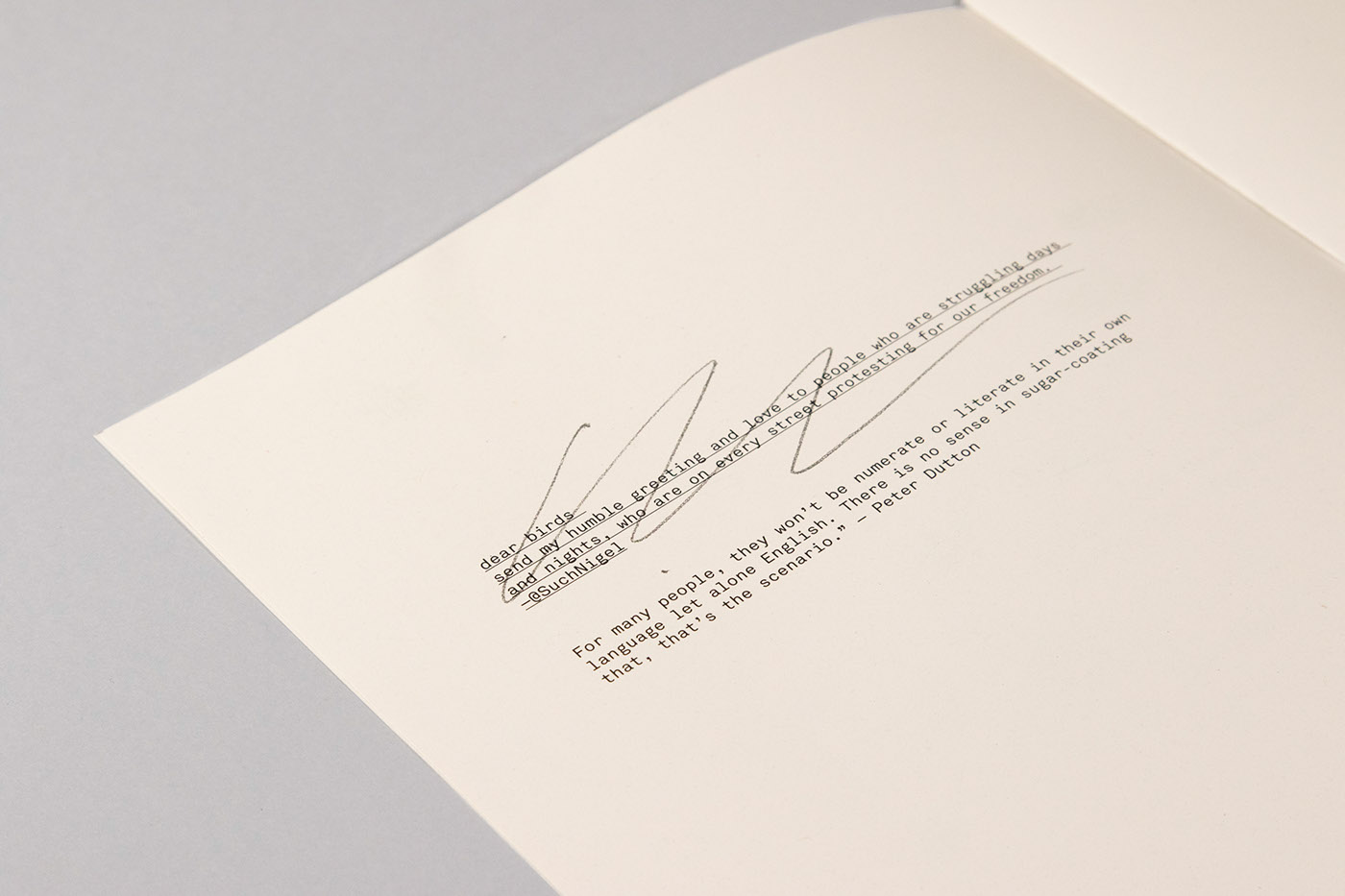Voices in Detention
Debates on refugee and asylum seekers issues are some of the most high profile
and controversial in the Australian political climate. In the most recent years, our government and legal system have engendered a societal complacency on these issues through the introduction of mandatory offshore processing, an effective media blackout within the detention centres, and other measures that place the plight of refugees outside of the public spotlight. If racist attitudes towards those seeking asylum aren’t challenged, these attitudes will continue to proliferate and become further normalised amongst a larger proportion of the community.
and controversial in the Australian political climate. In the most recent years, our government and legal system have engendered a societal complacency on these issues through the introduction of mandatory offshore processing, an effective media blackout within the detention centres, and other measures that place the plight of refugees outside of the public spotlight. If racist attitudes towards those seeking asylum aren’t challenged, these attitudes will continue to proliferate and become further normalised amongst a larger proportion of the community.

Using generative systems that features content from Twitter feeds of those in Australia’s offshore detention centres, the project Voices in Detention aims to challenge dominant narratives through illuminating experiences of the subjects of the detention regime. The publication, in conjunction with the accompanying collateral, recontextualises tweets from those currently in Nauru and Manus contrasting them with official statements from prominent politicians. The project facilitates an emotional response amongst an audience who might otherwise be disengaged , thereby giving tangibility to the people affected by detention.



In reading the Twitter timelines of a handful of detainees on Manus and Nauru,
I became interested in my own emotional response and how it differed from my
response to media reports on the same subject. The directness of Twitter re-establishes a sense of subjectivity for individuals who have lost their personhood within media narratives – even in media that is sympathetic to towards refugees. The process of these insights informed my design response to directly focus on the experience of refugees rather than the experience of the user, and to show how refugees’ voices are not represented within media or government narratives.
I became interested in my own emotional response and how it differed from my
response to media reports on the same subject. The directness of Twitter re-establishes a sense of subjectivity for individuals who have lost their personhood within media narratives – even in media that is sympathetic to towards refugees. The process of these insights informed my design response to directly focus on the experience of refugees rather than the experience of the user, and to show how refugees’ voices are not represented within media or government narratives.




This project directly targets people who are disengaged with current political issues. When conducting primary research it came to my attention that a lot of people aged 18-25 are disinterested in and alienated from the complex refugee issues surrounding Australia’s offshore processing centres. This disengagement stems from an emotional disconnection that is reinforced by the physical distance between Australians and those in detention created by offshore detention. This in turn engenders feelings of powerlessness due to the complexity and enormity of the problem.
Below is a user map explaining the process of the project and how it would interact with its audiences and users.

Voices in Detention encourages people to engage with an issue which they would
otherwise not have engaged with, aiming to stimulate discussions that counter oppressive representations of refugees and asylum seekers in mainstream media.Throughout the course of this research project, it’s come to my attention that the
way to instigate change in an area where there is institutional resistance is to shift public opinion on a grassroots level. This kind of change requires people to become emotionally invested in the issue. Voices in Detention is a project that attempts to stimulate such emotional engagement, and hopefully contribute to other grassroots efforts to end mandatory detention and remove stigma around refugees and asylum seekers.
otherwise not have engaged with, aiming to stimulate discussions that counter oppressive representations of refugees and asylum seekers in mainstream media.Throughout the course of this research project, it’s come to my attention that the
way to instigate change in an area where there is institutional resistance is to shift public opinion on a grassroots level. This kind of change requires people to become emotionally invested in the issue. Voices in Detention is a project that attempts to stimulate such emotional engagement, and hopefully contribute to other grassroots efforts to end mandatory detention and remove stigma around refugees and asylum seekers.






